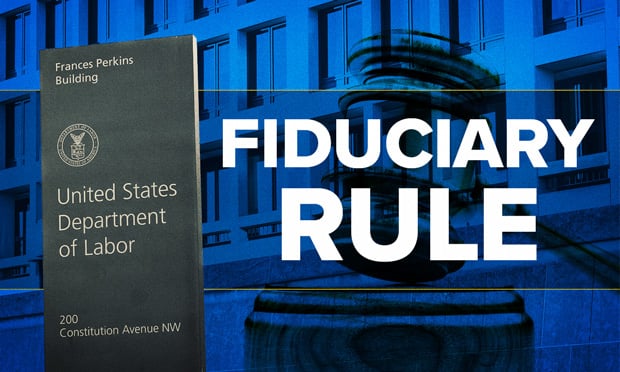The Internal Revenue Service has released guidance providing relief from certain excise taxesunder Section 4975 of the IRS Code and any related reportingrequirements to conform to the temporary enforcement policy issuedby the Department of Labor regarding its fiduciary rule.
|Labor released its Field Assistance Bulletin 2017-01 on March 13,explaining that while Labor expects the final regulation delayingthe applicability date of its fiduciary rule from April 10 to June9 to be effective before April 10, if Labor fails to meet thatdeadline, it plans to help fiduciary advisors avoid problemsbecause of the delay.
|The IRS noted in its guidance that because the IRS and LaborDepartment contemplate consistency in enforcing the fiduciaryprohibited transaction rules, the Treasury Department and IRS havedetermined that it is appropriate to adopt a temporary excise taxnon-applicability policy that conforms with the Labor’s temporaryenforcement policy described in FAB 2017-01.
|Related: Will ERISA preempt state law under thefiduciary rule?
|Accordingly, “the IRS will not apply Section 4975 and relatedreporting obligations with respect to any transaction or agreementto which the DOL’s temporary enforcement policy, or othersubsequent related enforcement guidance, would apply.”
|FAB 2017-1 “only applies to DOL enforcement,” Joshua Waldbeser,an attorney with Drinker, Biddle & Reath, told ThinkAdvisorTuesday. “So the industry remained concerned that financialinstitutions could still be liable for excise taxes on prohibitedtransactions – which is an IRS issue – even where the DOL itselfwouldn’t take enforcement action.”
|The IRS announcement provides that “no excise taxes will attachwhere the DOL non-enforcement policy would apply,” Waldbeserexplained. “In other words, it’s meant to sync up the IRS’enforcement of the excise tax rules on prohibited transactions withthe DOL’s non-enforcement policy,” which he characterized as “avery important piece of relief.”
|For instance, consider advice to IRAs, Waldbeser said. “Here,the DOL doesn’t even have enforcement powers, and the excise taxesare the main ‘penalty for advisors and institutions who influencetheir compensation through their recommendations, withoutsatisfying a prohibited transaction exemption. In the IRA spacethen, this announcement from the IRS is technically more importantthan the DOL non-enforcement policy it mirrors.”
Complete your profile to continue reading and get FREE access to BenefitsPRO, part of your ALM digital membership.
Your access to unlimited BenefitsPRO content isn’t changing.
Once you are an ALM digital member, you’ll receive:
- Critical BenefitsPRO information including cutting edge post-reform success strategies, access to educational webcasts and videos, resources from industry leaders, and informative Newsletters.
- Exclusive discounts on ALM, BenefitsPRO magazine and BenefitsPRO.com events
- Access to other award-winning ALM websites including ThinkAdvisor.com and Law.com
Already have an account? Sign In
© 2024 ALM Global, LLC, All Rights Reserved. Request academic re-use from www.copyright.com. All other uses, submit a request to [email protected]. For more information visit Asset & Logo Licensing.








